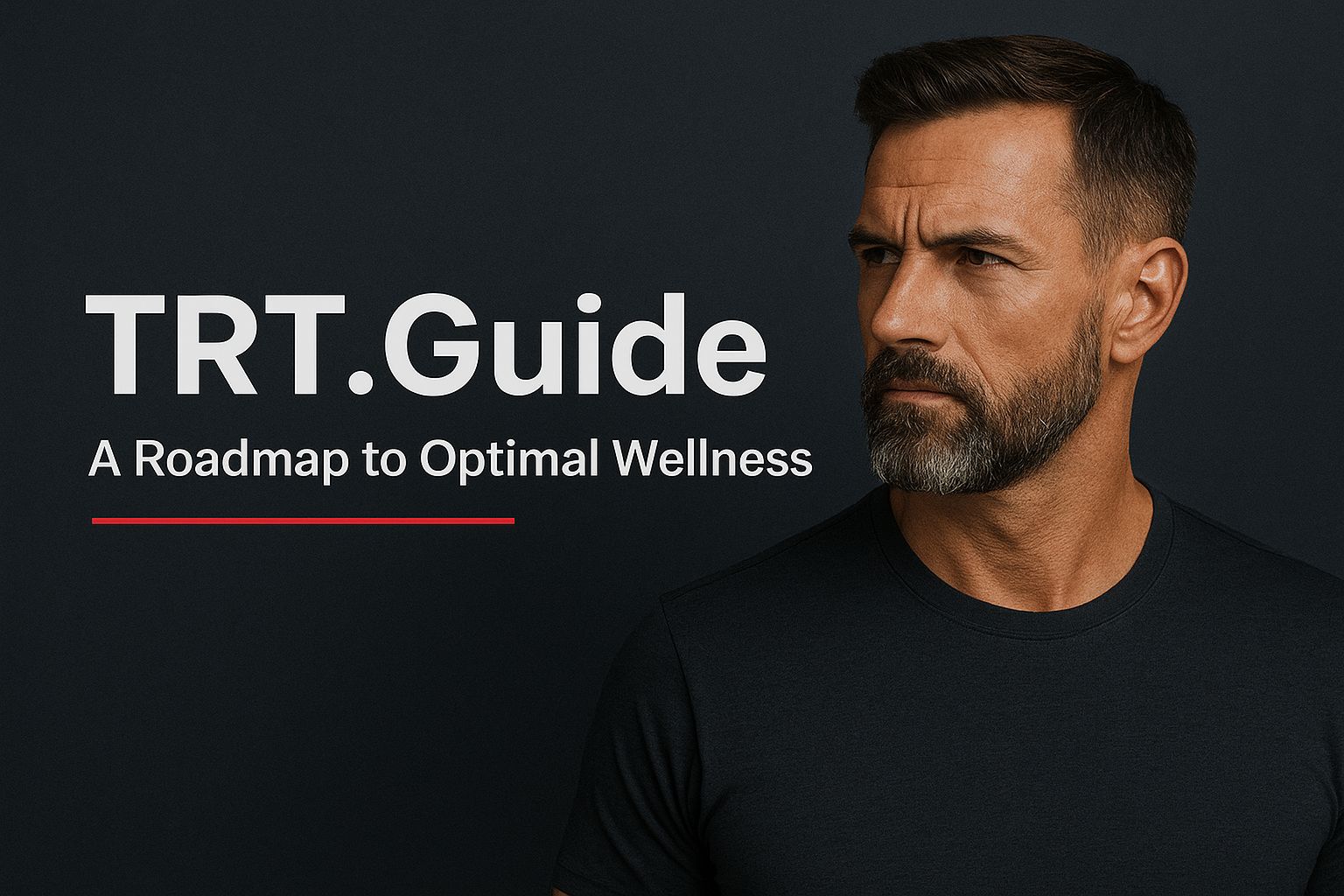If you’re feeling fatigued, experiencing mood swings, or struggling with low libido, you might be among many men considering testosterone therapy in Auburn. This treatment has gained popularity as a solution for those looking to reclaim their vitality and improve their overall well-being.
Understanding the benefits and potential risks of testosterone therapy is crucial for making informed decisions. With the right guidance and support, you can navigate your options and discover how this therapy could enhance your quality of life. Dive into the world of testosterone therapy and explore how it can help you feel like yourself again.
Overview of Testosterone Therapy
Testosterone therapy involves administering testosterone to men with low levels of this hormone, aiming to alleviate symptoms like fatigue, mood swings, and reduced libido. Various methods exist for delivering testosterone, including injections, patches, gels, and pellets.
- Injections: Injections are typically administered every one to three weeks, allowing for rapid absorption and effective elevation of testosterone levels.
- Patches: Patches adhere to the skin and release testosterone steadily over 24 hours. They offer a convenient option but require regular changing.
- Gels: Gels provide a daily application method, with testosterone absorbed through the skin. Users must take care to avoid transferring gel to others.
- Pellets: Pellets are implanted under the skin and gradually release testosterone over three to six months, offering a long-term solution without daily maintenance.
Benefits of testosterone therapy can include increased energy, improved mood, enhanced libido, and even greater muscle mass. Studies indicate that approximately 70% of men report significant symptom relief after commencing therapy. Yet, these benefits must be weighed against potential risks.
- Cardiovascular Risks: Some research links testosterone therapy to an increased risk of heart attack or stroke, particularly in older individuals with pre-existing conditions.
- Hormonal Imbalances: Too much testosterone can lead to side effects like acne, sleep apnea, and breast tissue enlargement.
- Prostate Health: There’s ongoing debate about the correlation between testosterone therapy and prostate cancer risk. Regular monitoring is essential.
- Infertility: Testosterone therapy can suppress natural testosterone production, resulting in reduced sperm production and potential infertility.
Consulting a healthcare provider experienced in hormone therapy ensures tailored treatment plans. Regular blood tests assess testosterone levels and monitor side effects, ensuring safety and effectiveness over time. Understanding both benefits and risks helps you make informed decisions about engaging in testosterone therapy. If you’re considering this treatment, seek professionals who prioritize ethical practices and patient education.
Benefits of Testosterone Therapy in Auburn
Testosterone therapy offers several advantages for men experiencing symptoms of low testosterone. The treatments not only alleviate specific issues but also improve overall quality of life.
Improved Energy Levels
Testosterone therapy can significantly boost your energy levels. When testosterone levels are optimized, many men report increased vitality and reduced fatigue. Studies indicate that around 70% of men undergoing therapy experience noticeable improvements in daily energy. Increased energy enhances your ability to engage in physical activities and enjoy a more active lifestyle. Additionally, a boost in energy contributes to better productivity at work and improved performance in recreational pursuits. Engaging in regular exercise becomes easier, leading to further health benefits such as improved cardiovascular health and weight management. In this way, testosterone therapy can help you regain the vigor and stamina of your younger years.
Enhanced Mood and Well-being
Testosterone therapy plays a crucial role in enhancing mood and overall well-being. Low testosterone often correlates with symptoms of irritability, anxiety, and depression. After starting therapy, many men report experiencing a more stable mood, increased motivation, and a greater sense of well-being. Research shows that approximately 65% of individuals undergoing testosterone therapy experience improved mood states. Activating testosterone levels positively affects neurotransmitter function, which can alleviate feelings of sadness and enhance overall emotional health. A better mood not only impacts your mental clarity but also enhances your relationships and social interactions. Improved emotional health significantly contributes to a higher quality of life, making testosterone therapy a valuable option for those struggling with low hormone levels.
Risks and Considerations
When considering testosterone therapy, understanding the potential risks is essential to making informed choices. Multiple factors, including individual health status and treatment methods, can influence the outcomes of this therapy.
Potential Side Effects
You might encounter side effects from testosterone therapy, which can vary based on the treatment approach. Common side effects include:
- Acne or skin reactions: Many individuals develop acne or rashes at the application site.
- Sleep apnea: Therapy may exacerbate sleep apnea, impacting sleep quality and overall health.
- Changes in mood: Some report increased aggression, irritability, or mood swings, which may affect personal relationships.
- Fluid retention: Testosterone can lead to fluid retention, causing swelling in limbs.
- Increased red blood cell count: Higher testosterone levels may result in elevated red blood cell production, increasing blood viscosity and the risk of clotting.
While many men benefit from the therapy, addressing side effects promptly with your healthcare provider minimizes health risks.
Important Health Precautions
Before starting testosterone therapy, consider the following health precautions:
- Consult a healthcare provider: Assess your medical history and any existing conditions, especially concerning cardiovascular health.
- Monitor prostate health: Regular screenings for prostate-specific antigen (PSA) levels are essential, as testosterone therapy may elevate these levels and potentially indicate prostate health issues.
- Evaluate heart health: Be aware of pre-existing heart conditions or risk factors; testosterone therapy might pose additional risks for cardiovascular events.
- Check for infertility concerns: Testosterone therapy can impact sperm production; discussing fertility preservation options with a specialist is advisable for men planning to father children.
- Regular blood tests: Periodic blood tests are critical for monitoring hormone levels, red blood cell count, and overall health, helping ensure safe therapy use.
Evaluating these considerations enhances the likelihood of positive outcomes while minimizing potential risks associated with testosterone therapy in Auburn.
Finding a Provider in Auburn
Locating a qualified provider for testosterone therapy in Auburn requires careful research and consideration. Here are essential steps to help you find the right clinic and assess your potential healthcare provider.
Locating Qualified Clinics
- Search Online: Use search engines to find testosterone therapy clinics in Auburn. Integrate keywords like “testosterone therapy clinics” or “hormone therapy providers” to refine results.
- Check Directories: Utilize medical directories, such as Healthgrades or Zocdoc, to search for clinics specializing in hormone therapy.
- Read Reviews: Look for patient testimonials and ratings to gauge the quality of care provided by various clinics. Websites like Yelp or Google Reviews can offer insights into previous patients’ experiences.
- Contact Local Health Networks: Reach out to hospitals or large healthcare systems in Auburn for recommendations. They often have associated clinics or specialists focused on hormone therapy.
- Inquire About Services: Ensure the clinics you find provide comprehensive services, including initial consultations, follow-ups, and regular health monitoring.
Assessing Provider Credentials
- Verify Qualifications: Check that providers have appropriate certifications in endocrinology or urology. Look for board certifications in hormone therapy.
- Review Experience: Inquire about their experience specifically with testosterone therapy, including the number of patients treated and success rates.
- Evaluate Communication: Schedule a consultation to assess how well the provider communicates. A good provider should explain the therapy clearly, including risks and benefits.
- Request Blood Tests: Ensure your potential provider emphasizes the importance of initial blood testing and ongoing monitoring for hormone levels and health indicators.
- Discuss Treatment Plans: Ask about personalized treatment plans and how they tailor approaches based on individual patient needs and medical history.
By following these steps, you can find a qualified provider in Auburn who understands testosterone therapy and prioritizes your health.
Patient Experiences and Testimonials
Patient experiences with testosterone therapy in Auburn reflect varied outcomes and insights gained during treatment. Listening to testimonials from those who have undergone the therapy provides valuable perspectives.
- Increased Energy Levels: Many patients report significant boosts in energy after starting testosterone therapy. For instance, Mark, a 45-year-old, noticed a marked improvement in his stamina, enabling him to engage in weekend sports activities without feeling fatigued.
- Enhanced Mood and Well-being: Emotional health improves for many individuals undergoing therapy. Sarah, a 50-year-old, shared that her mood stabilized significantly after beginning treatment. She felt less irritable and more positive, allowing her to reconnect with hobbies and loved ones.
- Improved Libido: A common benefit reported by men includes heightened libido. John, a 38-year-old, stated that testosterone therapy revitalized his sexual drive, contributing positively to his relationship.
- Greater Muscle Mass: Patients often express appreciation for the physical enhancements resulting from testosterone therapy. Tom, a 42-year-old, experienced noticeable muscle gains after several months of treatment, allowing him to achieve fitness goals set earlier in life.
- Health Monitoring Experiences: Regular health monitoring plays a crucial role in the therapy journey. Many patients emphasize the importance of blood tests in evaluating hormone levels and overall health. They encourage others to maintain open communication with healthcare providers to tailor treatment plans effectively.
Though many shared positive outcomes, it’s essential to recognize that several patients experienced side effects. Some reported acne and sleep disturbances, prompting discussions with their healthcare providers for adjustments. It’s vital to approach therapy holistically, balancing benefits with potential side effects.
Overall, testimonials highlight that patient experiences vary widely based on individual health factors. Positive changes stimulate many to maintain the therapy and monitor their health closely, ensuring they receive optimal care. Prospective patients in Auburn can look to these shared experiences for guidance in their testosterone therapy journey.
Conclusion
Exploring testosterone therapy in Auburn can be a transformative journey for many men. By understanding the benefits and risks associated with the treatment, you can make informed decisions that align with your health goals.
Finding a qualified provider is crucial to ensure you receive personalized care tailored to your needs. With the right support and monitoring, you can experience improvements in energy, mood, and overall well-being.
Remember to prioritize open communication with your healthcare provider throughout your therapy. This proactive approach will help you navigate any challenges and maximize the positive effects of testosterone therapy. Your path to enhanced vitality and health starts with the right information and guidance.
Frequently Asked Questions
What is testosterone therapy?
Testosterone therapy involves administering testosterone to men with low hormone levels to alleviate symptoms such as fatigue, low libido, and mood swings. Methods include injections, patches, gels, or pellets.
What are the benefits of testosterone therapy?
Benefits can include increased energy, improved mood, enhanced libido, and greater muscle mass. Approximately 70% of men report significant symptom relief after starting treatment, boosting overall well-being.
What are the risks associated with testosterone therapy?
Potential risks include cardiovascular issues, hormonal imbalances, and concerns about prostate health and infertility. Side effects can also involve acne, sleep apnea, and mood changes.
How can I find a qualified provider for testosterone therapy in Auburn?
To find a qualified provider, search online, check medical directories, read patient reviews, and ask local health networks for recommendations. Assess credentials and experience before making your choice.
What should I expect during testosterone therapy treatments?
Expect regular health monitoring, including blood tests to track hormone levels and side effects. Communication with your healthcare provider is crucial to personalize treatment and ensure safety.
What do patient testimonials say about testosterone therapy?
Many patients report increased energy, improved mood, and enhanced libido. However, experiences can vary, with some noting side effects like acne and sleep disturbances, highlighting the importance of monitoring.






